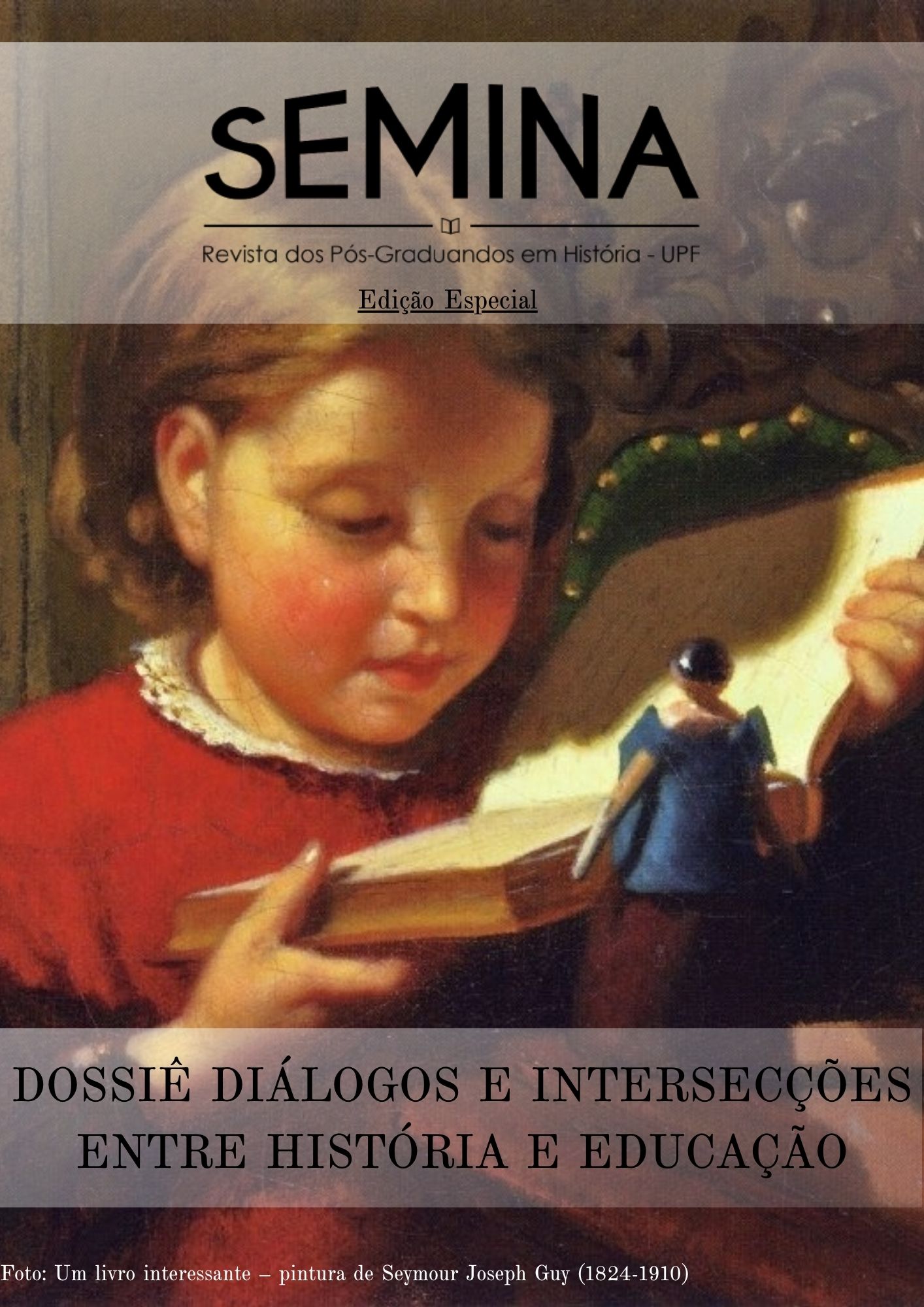A formação do docente em história no século XXI:
a educação transformadora, suas perspectivas teóricas e análises práticas
DOI:
https://doi.org/10.5335/srph.v21i2.13641Palavras-chave:
Ensino de História, Formação de professores, método de ensinoResumo
Atualmente, a formação do docente de História no Brasil, com exceção de alguns programas, fica pautada, em metodologias da educação típica do século XX, em que tem uma predileção pelo conteúdo em detrimento dos métodos de ensino. A observação desta carência impulsionou a ministrar aulas diferenciadas. Dessa forma, este artigo pretende demonstrar e evidenciar a aplicação do conceito de Consciência Histórica de Rüsen (2001; 2007), pode ser articulada com as reflexões propostas pelos seguintes autores, Carbonell (2016), Apple (1995; 2006), Hargreaves (2002; 2009) e Lévy (2015). Com base em uma metodologia transformadora, por ter o intuito de transformar a realidade, dentro de uma abordagem qualitativa, mas também com base na Micro-História, pela análise pormenorizada e construa uma narrativa para este novo objeto. Portanto, com a prática a ser apresentada neste artigo, estas análises propostas incentivam os futuros profissionais a promoverem uma Educação Transformadora no âmbito da disciplina de História nos ciclos básicos.
Downloads
Referências
APPLE, Michael W. Trabalho docente e textos: economia política das relações de classe e de gênero em educação. Porto alegre: Artes Médicas, 1995.
CARBONELL, Jaume. Pedagogias do século XXI: bases para a inovação educativa. Porto Alegre, Penso, 2016.
FONSECA, Selva Guimarães. O trabalho do professor na sala de aula: relações entre sujeitos, saberes e prática. Revista Brasileira de Estudos Pedagógicos. Brasília: INEP, v. 91, n. 228, p. 390-407, 2010.
GIMENO SACRISTÁN, José. O Currículo: uma reflexão sobre a prática. Porto Alegre: Penso, 2017.
GINZBURG, Carlo. Mitos, Emblemas e Sinais: morfologia e História. São Paulo: Companha das Letras, 1989.
HARGREAVES, Andy. EARL, Lorna. MOORE, Shawn. MANNING, Susan. Aprendendo a Mudar: o ensino para além dos conteúdos e padronização. Porto Alegre: ARTMED, 2002.
HARGREAVES, Andy. SHIRLEY, Dennis. The Fourth Way: the inspiring future for educational change. Thousand Oaks, California: Corwin Press, 2009.
JULIA, Dominique. A cultura escolar como objeto histórico. Revista Brasileira de História da Educação, Campinas, n. 1, p. 9-44, 2001.
LÉVY, Pierre. Introdução. In: LÉVY. Pierre. A inteligência Coletiva: por uma antropologia do ciberespaço. São Paulo: Edições Loyola, 2015.
MARCÍLIO, Maria Luiza. História da Escola em São Paulo e no Brasil. São Paulo: Instituto Braudel; Imprensa Oficial do Governo do Estado de São Paulo, 2019.
MATTAR, João. RAMOS, Daniela Karine. Metodologia da pesquisa em educação: Abordagens Qualitativas, Quantitativas e Mistas. São Paulo: Edições 70, 2021.
MORIN, Edgar. Os sete saberes necessários à educação do futuro. São Paulo: Côrtez; Brasília, DF: UNESCO, 2001.
PAULILO, André Luiz. Propostas de Ensino da História e expectativas de aprendizagem na reorientação curricular em São Paulo. História & Ensino, Londrina: UEL, v. 18, n. 2, p. 7-41, 2012.
RÜSEN, Jörn. História Viva: teoria da história III, formas e funções do conhecimento histórico. Brasília: Ed. UnB, 2007.
RÜSEN, Jörn. Razão histórica: teoria da história, fundamentos da ciência histórica. Brasília: Ed. UnB, 2001.
SCHMIDT, M. A.; BARCA, I.; MARTINS, E. R. (Orgs.). Jörn Rüsen e o ensino de História. Curitiba: Ed. UFPR, 2010.
VILLALTA, Luiz Carlos. O livro didático de História no Brasil: perspectivas de abordagem. Pós-História. Assis: UNESP, v. 9, p. 39-59, 2001.
Downloads
Publicado
Edição
Seção
Licença
Autores que publicam nesta revista concordam com os seguintes termos:
- Autores mantêm os direitos autorais e concedem à revista o direito de primeira publicação, com o trabalho simultaneamente licenciado sob a Licença Creative Commons Atribuição 4.0 Internacional – CC-BY que permitindo o compartilhamento do trabalho com reconhecimento da autoria do trabalho e publicação inicial nesta revista.
- Autores têm autorização para assumir contratos adicionais separadamente, para distribuição não-exclusiva da versão do trabalho publicada nesta revista (ex.: publicar em repositório institucional ou como capítulo de livro), com reconhecimento de autoria e publicação inicial nesta revista.
- Autores têm permissão e são estimulados a publicar e distribuir seu trabalho online (ex.: em repositórios institucionais ou na sua página pessoal), a qualquer ponto antes ou durante o processo editorial, já que isso pode gerar alterações produtivas, bem como aumentar o impacto e a citação do trabalho publicado, de acordo ainda com a democratização científica prevista pela Ciência Aberta.





